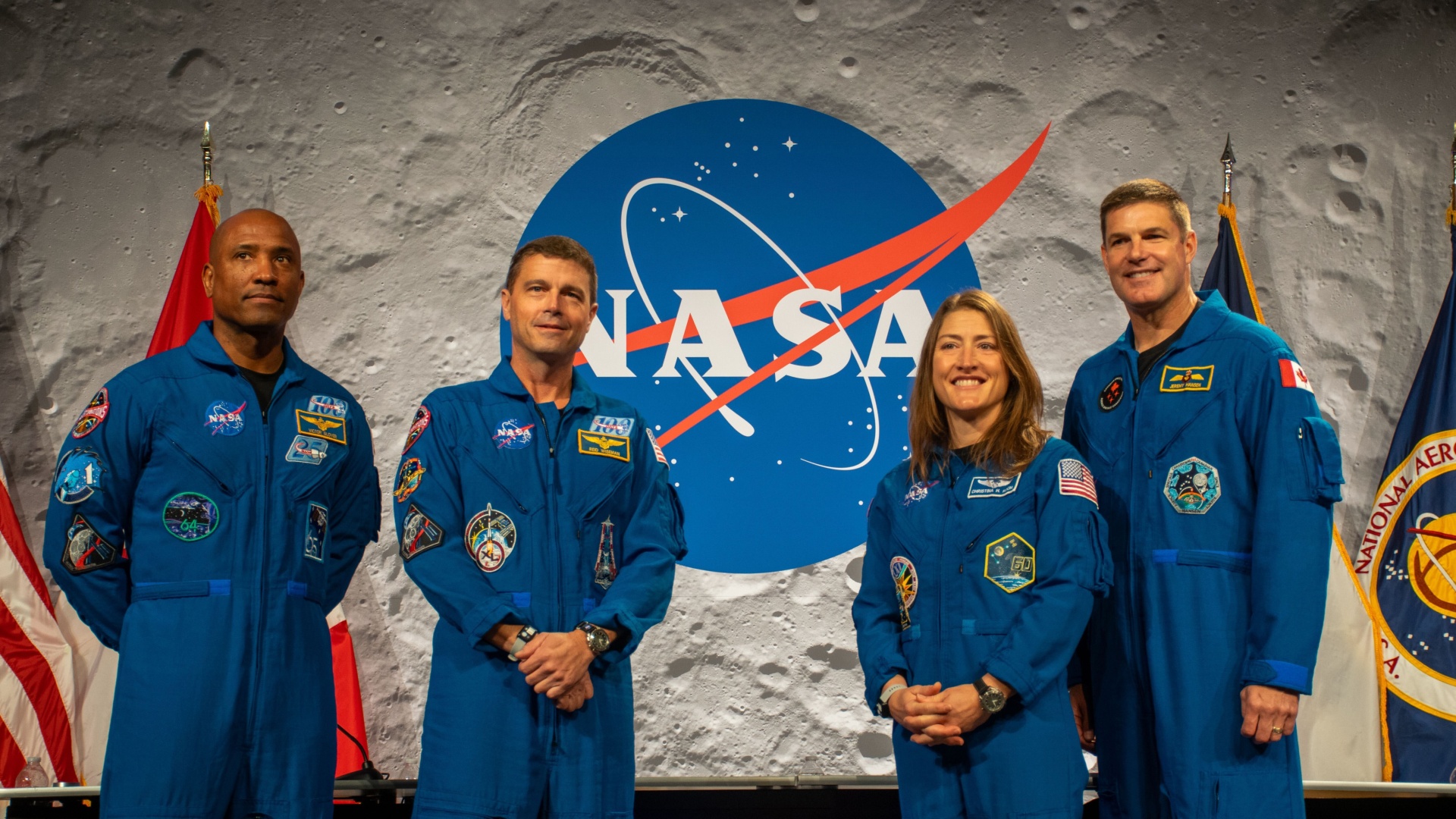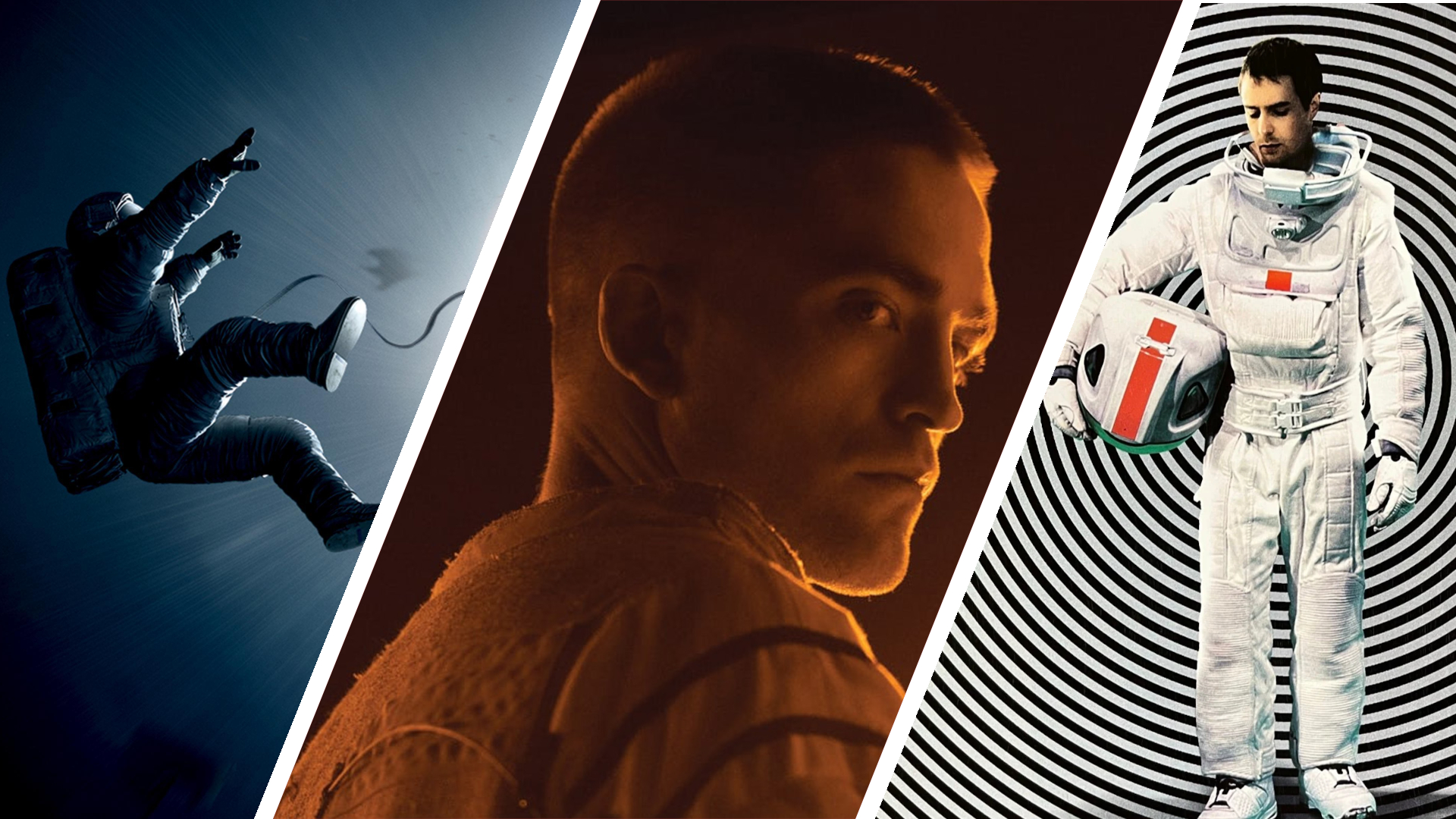'We are ready for every scenario.' NASA's Artemis 2 astronauts say they're all set for historic flight to the moon
"We are ready for every scenario as we ride this amazing Space Launch System on the Orion spacecraft, 250,000 miles away."

Breaking space news, the latest updates on rocket launches, skywatching events and more!
You are now subscribed
Your newsletter sign-up was successful
Want to add more newsletters?

Delivered daily
Daily Newsletter
Breaking space news, the latest updates on rocket launches, skywatching events and more!

Once a month
Watch This Space
Sign up to our monthly entertainment newsletter to keep up with all our coverage of the latest sci-fi and space movies, tv shows, games and books.

Once a week
Night Sky This Week
Discover this week's must-see night sky events, moon phases, and stunning astrophotos. Sign up for our skywatching newsletter and explore the universe with us!

Twice a month
Strange New Words
Space.com's Sci-Fi Reader's Club. Read a sci-fi short story every month and join a virtual community of fellow science fiction fans!
HOUSTON — The first astronauts to visit the moon in the 21st century can't wait for their trip.
The four astronauts of NASA's Artemis 2 mission to the moon, which could launch as early as Feb. 5 of next year, are deep in training for the first crewed lunar flight in over 50 years. They'll launch atop NASA's giant Space Launch System (SLS) rocket aboard an Orion spacecraft, whose name was revealed on Wednesday (Sept. 24) — "Integrity."
"We're going to launch when this vehicle is ready, when this team is ready, and we're going to go execute this mission to the best of our abilities," Artemis 2 commander Reid Wiseman told reporters here at NASA's Johnson Space Center (JSC) during a press conference on Wednesday.
"We might go to the moon — that's where we want to go — but it is a test mission, and we are ready for every scenario as we ride this amazing Space Launch System on the Orion spacecraft, 250,000 miles away," he added. "It's going to be amazing."
Joining Wiseman on Artemis 2 — a 10-day trip around the moon and back to Earth — are pilot Victor Glover and mission specialist Christina Koch (both of NASA), as well as Canadian Space Agency astronaut Jeremy Hansen, also a mission specialist. The mission, decades in the making since NASA first unveiled a planned crewed return to the moon in 2004, will set the stage for an even more ambitious flight: Artemis 3, the first astronaut landing on the moon of NASA's Artemis program.
Artemis 2 will mark a number of firsts: The first crewed moon flight since NASA's famed Apollo program. The first woman and person of color to visit lunar realms. The first astronaut flight of NASA's Artemis program, which seeks not only to land humans on the moon but also to conduct sustained crewed exploration of the lunar south pole and beyond to prepare for an eventual trip to Mars.
The flight will also mark the farthest trip by humans into deep space, potentially going up to 9,000 miles (14,500 kilometers) beyond the moon — farther than NASA's Apollo 13 astronauts flew during their harrowing, near-disastrous flight in 1970.
Breaking space news, the latest updates on rocket launches, skywatching events and more!
Glover said he tries not to think "about all of these grand things," however.
"That's a distraction," he said during Wednesday's event. "If we want to live up to the standards that we owe the American and Canadian [public] and humanity in general, we have to be able to focus and know what the next right thing is to do. And so I actually spend a lot of time clearing that out of my head so I can focus on my job."
Koch voiced similar sentiments, invoking a conversation she had recently with Fred Haise, Apollo 13's lunar module pilot.
"I met Fred Haise at a recent event here at JSC. He said 'Hi,' and then he said, 'I heard you're going to beat our record.' It made me realize maybe he's paying attention to it more than we are," Koch said. "I think that sometimes when we talk about superlatives, we may inadvertently ignore the real story of what's going on in our mission."That story, she added, is the push to return to the moon, observe the lunar surface and conduct 21st-century science on how the human body copes with deep-space travel to help prepare for eventual trips to Mars. "It's about the teamwork and the work that went into that, and the dedication that it took to take on those big challenges," Koch said.
The trip to the moon may seem like a short one for some of the Artemis 2 crew. In 2019, Koch shattered the record for the longest single spaceflight by a woman, spending 328 days aboard the International Space Station (ISS). Glover spent 168 days on the station during a previous flight, and Wiseman, NASA's former chief astronaut, spent 165 days in space on his own ISS flight. But for Hansen, Artemis 2's moon shot will be his first trip to space.
"It truly is an absolute privilege," Hansen said. "For us, Artemis 2 is about much more than just going back to the moon. It is about the pursuit of excellence."
Signs here at JSC, home of the agency's Mission Control centers and astronaut training, tout the flight's looming launch. "20 weeks away!" reads one sign at a training center.
NASA hopes to launch Artemis 2, a mission that has seen several delays since the successful Artemis 1 uncrewed test flight to lunar orbit in November 2022, between early February and April 26. The agency had hoped to fly sooner, but concerns about how Orion's heat shield performed during Artemis 1's reentry to Earth atmosphere have caused some delays.
NASA Acting Administrator Sean Duffy has said repeatedly that the agency's Artemis program is pivotal to the United States' ability to remain competitive on the international stage, particularly against China. The U.S., Duffy has said, is in a new space race with China to send astronauts to the moon.
"I'll be damned if the Chinese beat NASA, or beat America, back to the moon," Duffy said as he announced NASA's newest astronaut class here on Monday (Sept. 22). "We love competition, and we are going to win the second space race back to the moon."
Hansen said that he understands the perception of a race but feels that the international collaboration of Artemis 2 is a benefit.
"We're just going to pursue excellence," Hansen said. "That's how you win a space race, and that's just how you move our countries forward. More importantly, that's how you create an environment where you might encourage others to collaborate."
Glover said that he's focused on a different kind of race.
"The race that I think the most about is the relay race that we're in," he said. "We are going together, and our mission success is built on handing off, starting off with Artemis 3 — that sets up our country and our partners to go back to the surface of the moon."

Tariq is the award-winning Editor-in-Chief of Space.com and joined the team in 2001. He covers human spaceflight, as well as skywatching and entertainment. He became Space.com's Editor-in-Chief in 2019. Before joining Space.com, Tariq was a staff reporter for The Los Angeles Times covering education and city beats in La Habra, Fullerton and Huntington Beach. He's a recipient of the 2022 Harry Kolcum Award for excellence in space reporting and the 2025 Space Pioneer Award from the National Space Society. He is an Eagle Scout and Space Camp alum with journalism degrees from the USC and NYU. You can find Tariq at Space.com and as the co-host to the This Week In Space podcast on the TWiT network. To see his latest project, you can follow Tariq on Twitter @tariqjmalik.
You must confirm your public display name before commenting
Please logout and then login again, you will then be prompted to enter your display name.
